-
ORIGINAL ARTICLE06-28-2024
Quality of life at work for health professionals during the COVID-19 pandemic
Revista Brasileira de Enfermagem. 2024;77:e20230461
Abstract
ORIGINAL ARTICLEQuality of life at work for health professionals during the COVID-19 pandemic
Revista Brasileira de Enfermagem. 2024;77:e20230461
DOI 10.1590/0034-7167-2023-0461
Views0See moreABSTRACT
Objective:
to evaluate the quality of life at work of health professionals in direct and indirect care of COVID-19 cases.
Methods:
this was a cross-sectional study with 156 health professionals from a referral hospital. The relationship between sociodemographic and work-related variables and perceived stress and domains of the Quality of Life at Work Scale was investigated using inferential statistics and regression.
Results:
Satisfaction with Compassion was moderate (mean: 38.2), with low perception of stress, Burnout and Secondary Traumatic Stress (means: 18.8, 21.6 and 19.1). There were associations between: education, salary, multiple jobs and direct care with Compassion Satisfaction; low income, being a nurse and working overtime with Burnout; and working more than 12 hours, underlying disease and hospitalization for COVID-19 with Secondary Traumatic Stress.
Conclusion:
quality of life at work was satisfactory, despite the presence of Burnout and Secondary Traumatic Stress.
-
ORIGINAL ARTICLE06-28-2024
Nursing leadership strategies in addressing COVID-19 in light of John Kotter’s framework
Revista Brasileira de Enfermagem. 2024;77:e20230289
Abstract
ORIGINAL ARTICLENursing leadership strategies in addressing COVID-19 in light of John Kotter’s framework
Revista Brasileira de Enfermagem. 2024;77:e20230289
DOI 10.1590/0034-7167-2023-0289
Views0See moreABSTRACT
Objective:
To analyze the leadership strategies of nurses in university hospitals in response to care management changes during the COVID-19 pandemic, informed by John Kotter’s insights.
Methods:
This multicentric study utilized qualitative and analytical methods. It was conducted through semi-structured interviews with 139 lead nurses from 10 university hospitals in Brazil. Data analysis included Bardin’s content analysis and the webQDA software.
Results:
The primary category identified was “Nursing Leadership Strategies in the Battle Against COVID-19,” encompassing five subcategories. This category underscored the importance of strategic vision in nursing leadership for combating COVID-19 within hospital settings, as well as the necessity of working collaboratively with their teams and other healthcare professionals.
Final Considerations:
The results highlight the strategies used by lead nurses in confronting COVID-19, which can be associated with John Kotter’s theoretical framework and his model of change.
-
ORIGINAL ARTICLE06-28-2024
Quality of Care Transition for COVID-19 Patients in a University Hospital in Southern Brazil
Revista Brasileira de Enfermagem. 2024;77:e20230402
Abstract
ORIGINAL ARTICLEQuality of Care Transition for COVID-19 Patients in a University Hospital in Southern Brazil
Revista Brasileira de Enfermagem. 2024;77:e20230402
DOI 10.1590/0034-7167-2023-0402
Views0See moreABSTRACT
Objective:
To assess the quality of care transition from hospital to home for COVID-19 patients.
Method:
A cross-sectional study conducted at a University Hospital in Southern Brazil, involving 78 patients discharged after COVID-19 hospitalization. Data collection was performed via telephone using the Brazilian version of the Care Transitions Measure (CTM-15). Data were analyzed using descriptive and analytical statistics.
Results:
The mean quality of care transition was 70.8 on a scale ranging from zero to 100, indicating moderate quality of care transition. The highest score was attributed to factor 1, “Preparation for self-management,” and the lowest to factor 4, “Care Plan.”
Conclusions:
It is important to enhance communication and support provided to patients during the transition process, especially regarding understanding prescribed medications and the development of clear care plans.
-
REVIEW06-28-2024
Clinical outcomes in newborns of pregnant women with COVID-19: integrative review
Revista Brasileira de Enfermagem. 2024;77:e20230400
Abstract
REVIEWClinical outcomes in newborns of pregnant women with COVID-19: integrative review
Revista Brasileira de Enfermagem. 2024;77:e20230400
DOI 10.1590/0034-7167-2023-0400
Views0See moreABSTRACT
Objectives:
to analyze clinical outcomes in newborns of pregnant women with COVID-19.
Methods:
integrative review conducted in PubMed, Web of Knowledge, SCOPUS, CINHAL; 2,111 studies were obtained, and 8 articles comprised the final sample.
Results:
clinical outcomes in neonates of pregnant women positive for COVID-19 were classified according to the following categories: a) contamination by COVID-19, reported in 62.5% of the studies; b) hospital discharge due to improvement, mentioned in 37.5% of the articles; c) death, representing rare cases in 25% of the sample. The most prevalent gestational complication was prematurity, mentioned in 75% of the studies. This complication has been observed due to cases of premature rupture of membranes and placental abruption.
Conclusions:
despite the knowledge of asymptomatic and mildly symptomatic behavior in neonates, it is important to continue the search for new clinical data, as this public has uncertain reactions to SARS-CoV-2 infection.

-
ORIGINAL ARTICLE06-17-2024
Website for families of non-breastfed children: development and validation of content and interface
Revista Brasileira de Enfermagem. 2024;77(3):e20230490
Abstract
ORIGINAL ARTICLEWebsite for families of non-breastfed children: development and validation of content and interface
Revista Brasileira de Enfermagem. 2024;77(3):e20230490
DOI 10.1590/0034-7167-2023-0490
Views0See moreABSTRACT
Objectives:
to develop and validate the content and interface of a guidance website to support families in promoting Food and Nutrition Security for children under six months who are not breastfed.
Methods:
methodological study, Knowledge Translation, in two stages of creation: 1) content and validation on the criterion of accuracy in a panel of experts; 2) interface and validation on the criteria of content, language, illustrations, layout, motivation, culture and applicability.
Results:
the “Milky Way” website is freely available: . The content was structured in a decision tree made up of types of milk: milk formula, whole cow’s milk and powdered milk; and utensils: bottle, cup and measuring spoon. There were 46 illustrations to elucidate the content, facilitate understanding and engage the target population. The Content Validity Index was 0.91.
Conclusions:
the website is a validated technology with evidence-based written and pictorial content translated for use with families.

-
ORIGINAL ARTICLE06-17-2024
Quality of life associated with nursing professionals’ individual resources and work
Revista Brasileira de Enfermagem. 2024;77(3):e20230476
Abstract
ORIGINAL ARTICLEQuality of life associated with nursing professionals’ individual resources and work
Revista Brasileira de Enfermagem. 2024;77(3):e20230476
DOI 10.1590/0034-7167-2023-0476
Views0See moreABSTRACT
Objectives:
to assess the physical and mental components of nursing professionals’ quality of life and associate them with individual, health and work characteristics.
Methods:
cross-sectional research, with nursing professionals from a university hospital in São Paulo. Own questionnaire and validated instruments were applied.
Results:
the overall quality of life was compromised. The physical component was lower in relation to low family income and among those who perceived greater control/pressure at work, and better for those who practiced physical activity and had support of leader and organization. The mental component was lower in professionals who reported dissatisfaction with work, worse self-rated physical health and were older. Scores for both components reduced due to work-related illnesses, worse work ability and increased daytime sleepiness.
Conclusions:
quality of life was statistically associated with controllable institutional factors and individual resources that, except age, can be promoted.
-
ORIGINAL ARTICLE06-17-2024
Giving meaning to internalized violence throughout life by older adults living in rural areas
Revista Brasileira de Enfermagem. 2024;77(3):e20230163
Abstract
ORIGINAL ARTICLEGiving meaning to internalized violence throughout life by older adults living in rural areas
Revista Brasileira de Enfermagem. 2024;77(3):e20230163
DOI 10.1590/0034-7167-2023-0163
Views0See moreABSTRACT
Objectives:
to understand the meanings of violence internalized throughout life by older adults living in rural areas.
Methods:
a qualitative study, anchored in the Symbolic Interactionism theoretical framework and the Grounded Theory methodological framework in the constructivist aspect. Data collection occurred through individual interviews. Data were coded using the Atlas.ti software.
Results:
it was possible to identify that the context of rural areas strengthens patriarchy culture as well as contributing to violence silence and naturalization. It was also found that violence is a product of social inequality and gender inequality.
Final Considerations:
older adults living in rural areas internalized the violence suffered in a unique way, and this scenario’s specific aspects can increase intra-family abuse, as there is a patriarchal culture that promotes social and gender inequality.
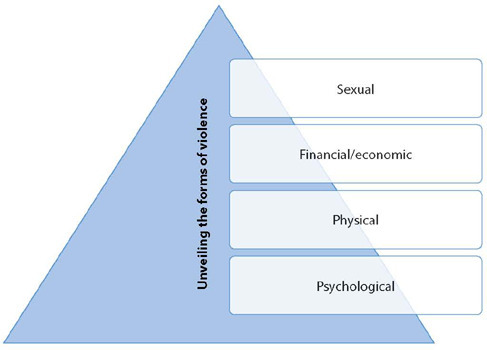
-
ORIGINAL ARTICLE06-17-2024
Social protection in areas vulnerable to tuberculosis: a mixed methods study in São Luís, Maranhão
Revista Brasileira de Enfermagem. 2024;77(3):e20230428
Abstract
ORIGINAL ARTICLESocial protection in areas vulnerable to tuberculosis: a mixed methods study in São Luís, Maranhão
Revista Brasileira de Enfermagem. 2024;77(3):e20230428
DOI 10.1590/0034-7167-2023-0428
Views0See moreABSTRACT
Objectives:
to analyze the risk areas for tuberculosis and the influences of social protection on the development of treatment for the disease in the municipality of São Luís, Maranhão.
Methods:
this is explanatory sequential mixed method research. In the quantitative phase, the data were obtained from the Notifiable Diseases Information System from 2010 to 2019, with georeferencing being carried out to identify areas vulnerable to tuberculosis. In the qualitative phase, semi-structured interviews were carried out with individuals who received social benefits.
Results:
7,381 cases were geocoded, and, from the purely spatial scanning analysis, it was possible to identify 13 spatial clusters of risk. As for the interviews, there was a positive relationship between patient improvement and receiving benefits.
Conclusions:
geographic space and social determinants are relevant for reorienting monitoring actions for the conditions that generate the health-disease process.
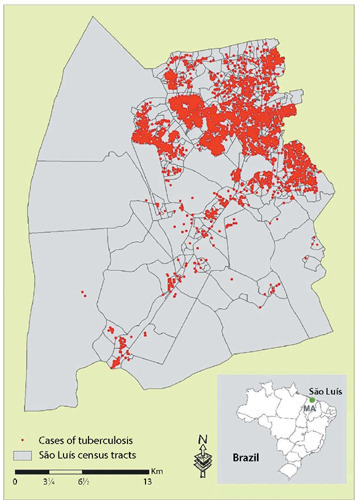
-
ORIGINAL ARTICLE07-14-2021
Impact of the contamination time by Escherichia coli on biofilm formation in surgical instruments
Revista Brasileira de Enfermagem. 2021;74(3):e20200759
Abstract
ORIGINAL ARTICLEImpact of the contamination time by Escherichia coli on biofilm formation in surgical instruments
Revista Brasileira de Enfermagem. 2021;74(3):e20200759
DOI 10.1590/0034-7167-2020-0759
Views1See moreABSTRACT
Objectives:
to evaluate the microbial load and adherence of Escherichia coli in different areas of the surgical instrument surface exposed to experimental contamination over time.
Methods:
experimental study in which fragments of crile forceps (serrated, rod and rack) were contaminated by immersion in Tryptic Soy Broth, containing 106 CFU/mL of E. coli, for 1, 2, 4, 6, 8, 12 and 24 hours. Microbial load and bacterial adherence were evaluated using microbiological culture and scanning electron microscopy, respectively.
Results:
there was an increase in the microbial load on the surgical instrument, proportional to the contamination interval, ranging from 102 after 1 hour to 105 CFU/cm2 in 24 hours. The presence of exopolysaccharide was detected after two hours of contamination.
Conclusions:
microbial load and adhesion of E. coli increased over time, reaching 105 CFU/cm2 after 24 hours of contamination, starting biofilm formation after two hours.
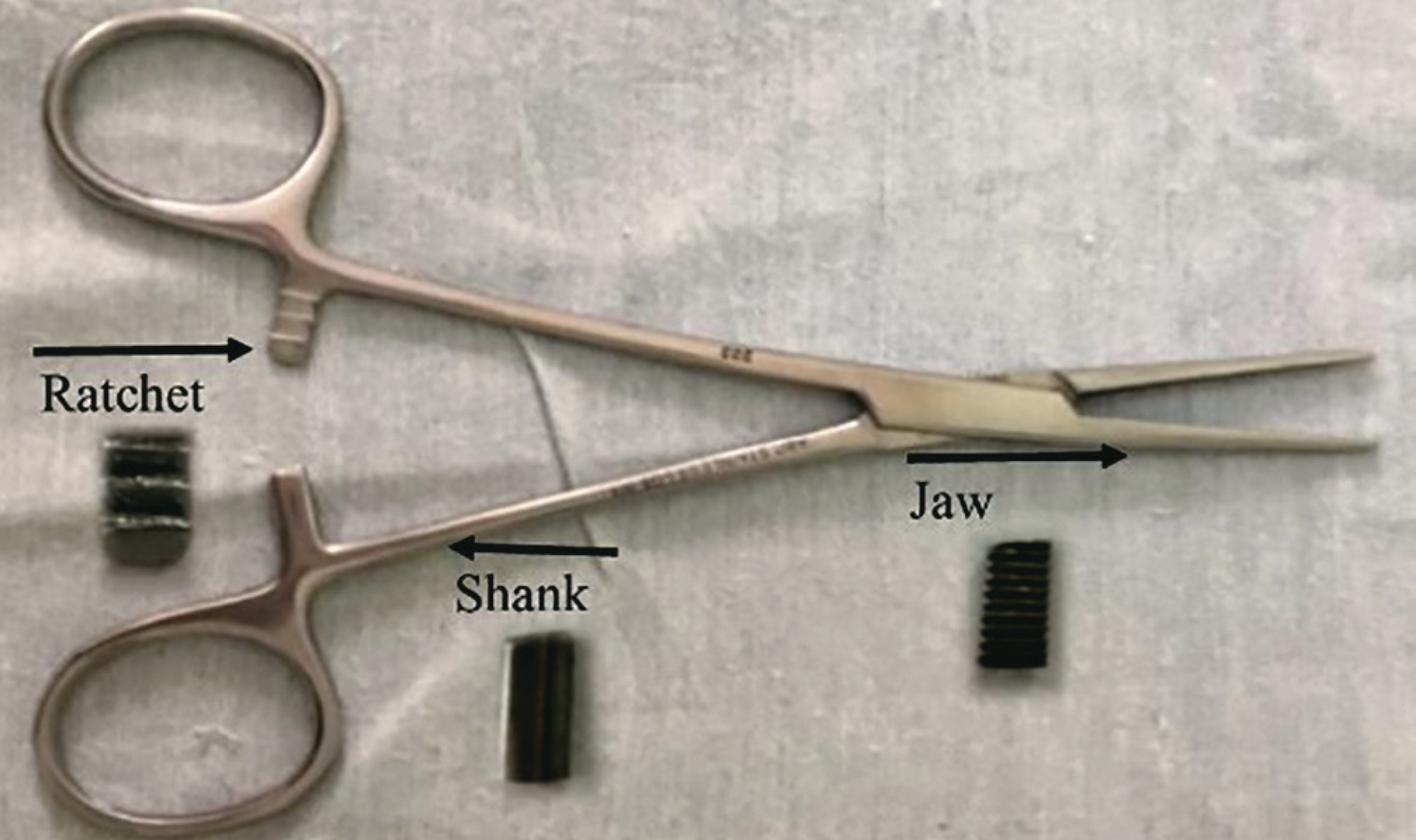
-
REVIEW07-09-2021
Breast cancer screening in Primary Health Care in Brazil: a systematic review
Revista Brasileira de Enfermagem. 2021;74(3):e20200995
Abstract
REVIEWBreast cancer screening in Primary Health Care in Brazil: a systematic review
Revista Brasileira de Enfermagem. 2021;74(3):e20200995
DOI 10.1590/0034-7167-2020-0995
Views1See moreABSTRACT
Objectives:
to analyze care strategies for breast cancer screening in Primary Health Care in Brazil.
Methods:
this is a systematic review following the Cochrane Collaboration recommendations.
Results:
among 355 manuscripts, five were eligible. The patient navigation program by Community Health Agent stood out with the best result, among the strategies: flexibility of goals considering viability; community engagement; team training; active search of the target population by Community Health Agent; request for mammography by physicians; actions integrated to women’s health; monitoring of mammography results, absent users, and population coverage by physician and nurse; and assessment of criteria for requesting screening mammography by means of an information system. The population coverage rate in the program ranged from 23% to 88%.
Conclusions:
Primary Health Care in Brazil presents devices with potential to induce the production of care for breast cancer screening.

-
ORIGINAL ARTICLE06-18-2021
Spatial-temporal analysis of leprosy in a priority Brazilian northeast municipality for disease control
Revista Brasileira de Enfermagem. 2021;74(3):e20201101
Abstract
ORIGINAL ARTICLESpatial-temporal analysis of leprosy in a priority Brazilian northeast municipality for disease control
Revista Brasileira de Enfermagem. 2021;74(3):e20201101
DOI 10.1590/0034-7167-2020-1101
Views0See moreABSTRACT
Objectives:
to analyze the spatial-temporal distribution of leprosy in a priority municipality for leprosy control.
Methods:
ecological study, conducted in a city in the Northeast of Brazil, whose analysis units were census sectors. The study used compulsory notification data for cases registered between 2008 and 2017. TerraView software and the Batch Geocode tool was used for geocoding. The detection of spatial-temporal agglomerations of high relative risks was done by scanning statistics.
Results:
the spatial-temporal distribution of cases was heterogeneous, creating four agglomerations of high relative risks in the urban area of the municipality between the years 2008 and 2012; and annual prevalence rates classified from high to hyperendemic.
Conclusions:
areas of higher risk and concentration of the disease in space-time were linked to the characteristics of high population density and social vulnerability of these spaces, raising the prioritization of health professionals’ actions, systems, and services for control, and monitoring the disease.
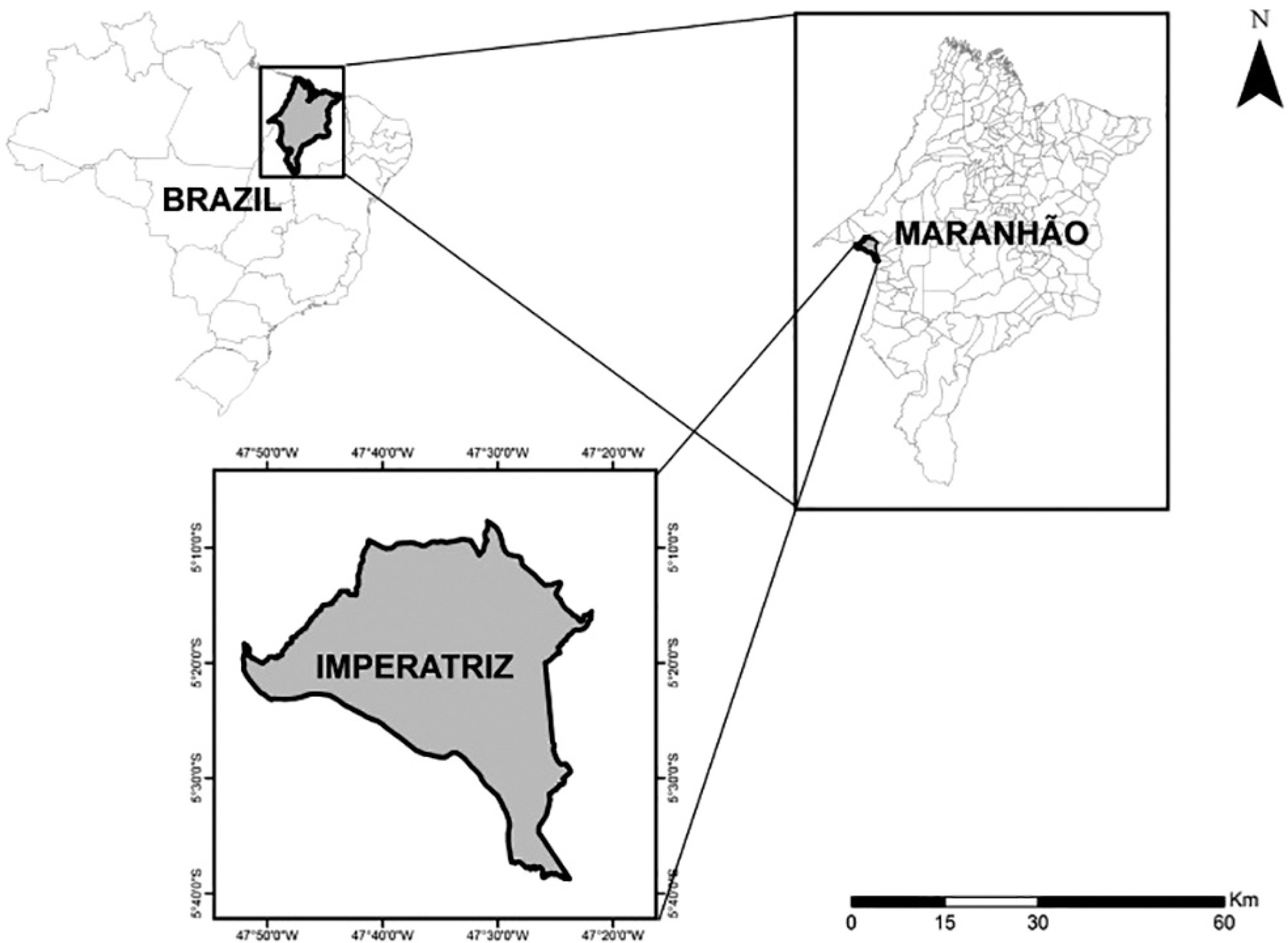
-
ORIGINAL ARTICLE06-18-2021
Assessment of the implementation of a nurse-initiated pain management protocol in the emergency department
Revista Brasileira de Enfermagem. 2021;74(3):e20201303
Abstract
ORIGINAL ARTICLEAssessment of the implementation of a nurse-initiated pain management protocol in the emergency department
Revista Brasileira de Enfermagem. 2021;74(3):e20201303
DOI 10.1590/0034-7167-2020-1303
Views0See moreABSTRACT
Objectives:
to assess the implementation of a nurse-initiated pain management protocol for patients triaged as semi-urgent, and its impact in pain intensity, in the Emergency Department.
Methods:
a prospective cohort study for adult patients with pain who had been triaged as semi-urgent and admitted to the hospital’s Emergency Department. Patients who received the intervention (pain-management protocol with analgesic administration) were compared to those who were managed using the conventional approach (physician evaluation prior to analgesic administration).
Results:
of the 185 patients included, 55 (30%) received the intervention, and 130 (70%) were managed conventionally. Patients in the intervention group were more likely to have taken pain medication in the 4 hours prior to admission, and reported higher levels of pain at admission and more significant reductions in pain level.
Conclusions:
despite low protocol adherence, the intervention resulted in higher reported pain relief.
-
ORIGINAL ARTICLE09-10-2021
Contradicting perceptions of nursing teachers on the neoliberal context of labor
Revista Brasileira de Enfermagem. 2021;74(4):e20200056
Abstract
ORIGINAL ARTICLEContradicting perceptions of nursing teachers on the neoliberal context of labor
Revista Brasileira de Enfermagem. 2021;74(4):e20200056
DOI 10.1590/0034-7167-2020-0056
Views0See moreABSTRACT
Objectives:
To identify and analyze the perceptions of nursing teachers on the new configurations of the job world and the repercussions for their labor activities.
Methods:
Qualitative, descriptive, exploratory research, carried out at two federal nursing colleges in Rio de Janeiro. Data collection occurred with 27 nursing teachers, between May and June 2016, through semi-structured interviews. The data were treated using the thematic content analysis technique.
Results:
The results showed contradictions in the teachers’ perceptions about the job world, which has been guided by neoliberal precepts. Such contradictions are characterized by manifestations in favor of incorporating these precepts, highlighting their negative effects on nursing teaching work.
Final considerations:
There are incongruities in the way of perceiving the current configuration of the job world, proposing more and profound reflections on such a work scenario.
-
ORIGINAL ARTICLE06-04-2021
Association between early pregnant hospitalization and use of obstetric interventions and cesarean: a cross-sectional study
Revista Brasileira de Enfermagem. 2021;74(4):e20200397
Abstract
ORIGINAL ARTICLEAssociation between early pregnant hospitalization and use of obstetric interventions and cesarean: a cross-sectional study
Revista Brasileira de Enfermagem. 2021;74(4):e20200397
DOI 10.1590/0034-7167-2020-0397
Views0See moreABSTRACT
Objective:
Evaluate the association between early pregnant hospitalization and the use of obstetric interventions and cesarean delivery route.
Methods:
Cross-sectional study, with 758 women selected at the time of childbirth. It was assumed as early hospitalization when the woman was admitted to the hospital having less than 6 cm of cervical dilation. Logistic regression models were constructed in order to estimate the odds ratio for each obstetric intervention, adjusted by sociodemographic and obstetric variables.
Results:
73.22% of women were early hospitalized. On average, they had 1.97 times the chance to undergo Kristeller’s maneuver, 2.59 and 1.80 times the chance to receive oxytocin infusion and analgesia, respectively, and 8 times more chances to having their children by cesarean delivery when compared to women that had timely hospitalization.
Conclusion:
Early hospitalized women were submitted to a higher number of obstetric intervention and had increased chances of undergoing cesarean sections.
-
ORIGINAL ARTICLE07-30-2021
Meaning of aging for caregivers of senile elderly people
Revista Brasileira de Enfermagem. 2021;74(4):e20201240
Abstract
ORIGINAL ARTICLEMeaning of aging for caregivers of senile elderly people
Revista Brasileira de Enfermagem. 2021;74(4):e20201240
DOI 10.1590/0034-7167-2020-1240
Views0See moreABSTRACT
Objectives:
to understand the meaning of aging for caregivers of senile elderly people.
Methods:
qualitative study carried out with 12 caregivers of elderly people registered in the Home Care Service, adopting the Explanatory Model of Kleinman’s Disease as a theoretical framework. Data were collected from April to June 2019, through semi-structured, audio-recorded interviews, carried out at home and submitted to content analysis.
Results:
taking care of senile elderly people triggers reflections on aging that sometimes lead to a new meaning of this process, besides stimulating the recognition of the factors that influence it, with emphasis on the life history, occupation and deleterious behaviors adopted throughout life.
Final Considerations:
the care experience influences the meaning attributed to aging, favoring: the identification of modifiable and non-modifiable aspects and behaviors that make it healthy; reflection on aging itself, with a new meaning of habits and behaviors to be adopted.
-
ORIGINAL ARTICLE07-30-2021
Curricular reforms in the transformation of nursing teaching in a federal university
Revista Brasileira de Enfermagem. 2021;74(4):e20201242
Abstract
ORIGINAL ARTICLECurricular reforms in the transformation of nursing teaching in a federal university
Revista Brasileira de Enfermagem. 2021;74(4):e20201242
DOI 10.1590/0034-7167-2020-1242
Views1See moreABSTRACT
Objectives:
to discuss the curricular reforms adopted for nursing teaching in Brazil, from 1969 to 2019.
Methods:
historical, qualitative approach using the thematic oral history and document research. 13 interviews were carried out with graduation nursing professors from a federal university in the South of Brazil. The document sources were the political-pedagogical projects of the course and their associated documents. Minayo’s thematic analysis was used.
Results:
nursing curricula delineates the profile of the professional that must be formed and are reviewed in order to be adapted to social and educational changes, showing the scientific and professional potential of the nurse. Curricular reforms consider the quality of nursing formation.
Final Considerations:
the structure of the curriculum and the reforms that took place emerged according to the historical, political, epidemiological and social context demanded from the profession, to attend to the demands of society and to the work market.
-
ORIGINAL ARTICLE10-17-2022
Construction and validation of clinical scenarios for training informal caregivers of dependent persons
Revista Brasileira de Enfermagem. 2022;75(5):e20220140
Abstract
ORIGINAL ARTICLEConstruction and validation of clinical scenarios for training informal caregivers of dependent persons
Revista Brasileira de Enfermagem. 2022;75(5):e20220140
DOI 10.1590/0034-7167-2022-0140
Views0See moreABSTRACT
Objective:
To construct and validate three clinical scenarios for training dependent persons’ informal caregivers.
Methods:
Methodological study, conducted between January and August 2021, in a municipality in the northwest of the state of Paraná. It was developed in two stages: construction of scenarios; and content validation by experts (n = 12). To estimate the degree of agreement between the experts, the content validity index was used, and 80% was considered an acceptable rate of agreement.
Results:
The simulation scenarios proved appropriate, obtaining an average value of 91.6%. However, some adjustments were made in their organization pertaining clarity in the wording of guidelines, as suggested by the expert validators.
Conclusions:
The construction and validation of the clinical scenarios proved to be adequate and relevant for use in the training of informal caregivers of dependent persons.
-
ORIGINAL ARTICLE08-08-2022
Social and territorial inequalities in the mortality of children and adolescents due to COVID-19 in Brazil
Revista Brasileira de Enfermagem. 2022;75(6):e20210482
Abstract
ORIGINAL ARTICLESocial and territorial inequalities in the mortality of children and adolescents due to COVID-19 in Brazil
Revista Brasileira de Enfermagem. 2022;75(6):e20210482
DOI 10.1590/0034-7167-2021-0482
Views0See moreABSTRACT
Objective:
To analyze the mortality rate of COVID-19 among children and adolescents aged 0 to 14 years.
Methods:
Ecological and exploratory study of children’s mortality rate by COVID-19 in Brazil, from February to October 2020. The study used the Severe Acute Respiratory Syndrome database to collect the data and made the analysis using descriptive spatial statistics by age and race/color classification.
Result:
The mortality rate due to COVID-19 represented 1.34 deaths per one hundred thousand in the total group evaluated. The age group with the highest frequency and mortality rate was 1 to 4 years of age. There is a higher frequency of deaths in the brown and Indigenous population.
Conclusion:
The distribution of deaths due to COVID-19 is unequal in the national territory, and there is a wide variation in the mortality rate by age and race/color groups.

-
ORIGINAL ARTICLE05-21-2021
Prevalence and factors associated with acute kidney injury in patients in intensive care units
Revista Brasileira de Enfermagem. 2021;74(2):e20200790
Abstract
ORIGINAL ARTICLEPrevalence and factors associated with acute kidney injury in patients in intensive care units
Revista Brasileira de Enfermagem. 2021;74(2):e20200790
DOI 10.1590/0034-7167-2020-0790
Views0See moreABSTRACT
Objectives:
to identify the prevalence and factors associated with the development of acute kidney injury in critically ill patients.
Methods:
a cross-sectional study, conducted from June 2018 to August 2019. The Kidney Disease Improving Global Outcomes was used to classify acute kidney injury. A significant value was set at p<0.05.
Results:
a total of 212 patients were included, of whom 35.8% evolved into an acute kidney injury. Patients with acute kidney injury had hypertension, higher levels on severity scores and a higher baseline creatinine rate> 1.5 mg/dL, also, when applied logistic regression, were 7 times more likely to develop acute kidney injury, Odds Ratio 7.018. More than half (56.6%) of the patients with acute kidney injury died. Moreover, 26.7% of these patients developed pressure sore.
Conclusions:
the prevalence of kidney injury was high (35.8%). The patients who developed it had a higher severity, mortality, and pressure sore index.
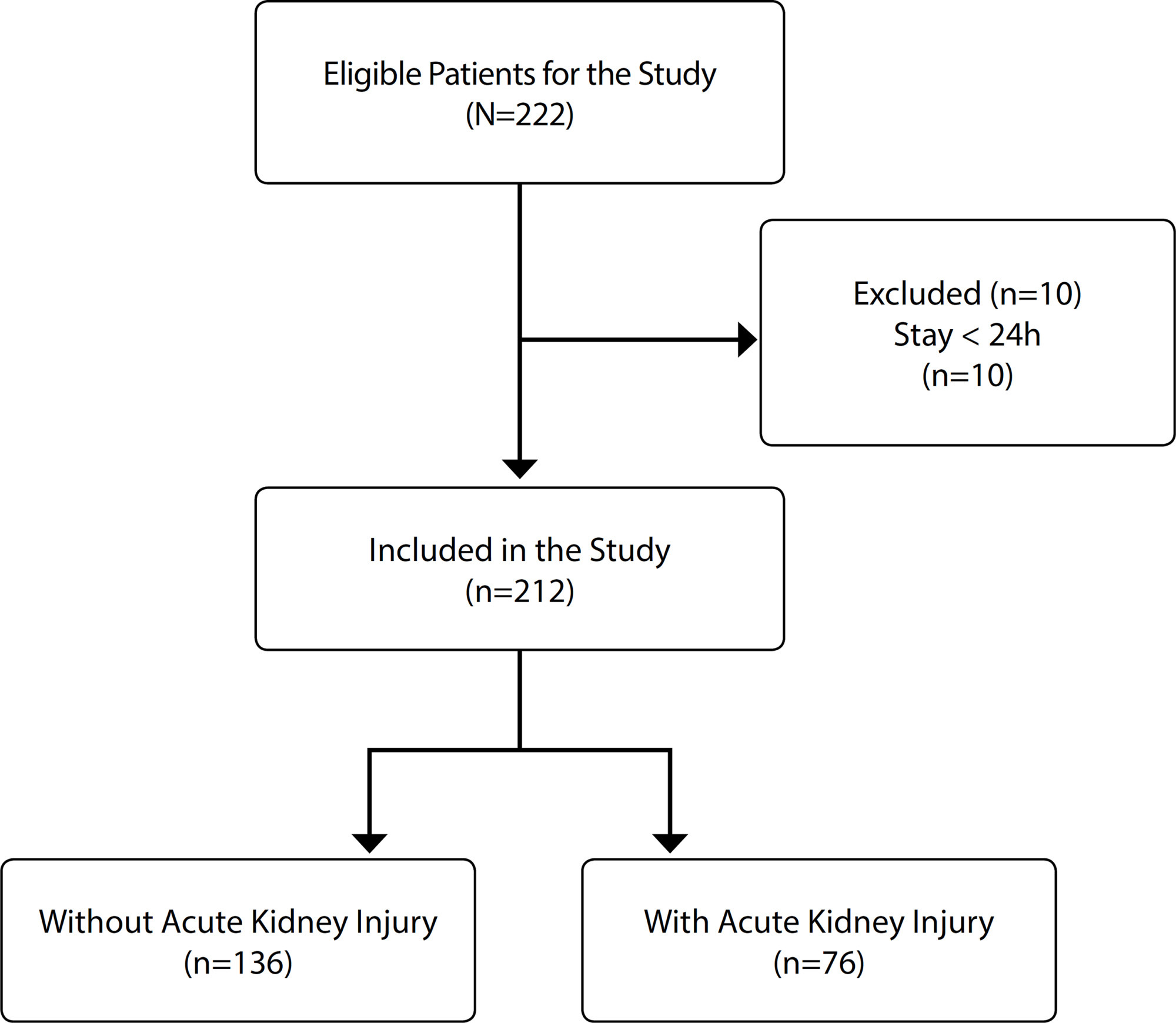
-
REVIEW03-07-2022
Implications of Cannabis and Cannabinoid Use in COVID-19: Scoping Review
Revista Brasileira de Enfermagem. 2022;75:e20201374
Abstract
REVIEWImplications of Cannabis and Cannabinoid Use in COVID-19: Scoping Review
Revista Brasileira de Enfermagem. 2022;75:e20201374
DOI 10.1590/0034-7167-2020-1374
Views0See moreABSTRACT
Objective:
to identify and synthesize studies on the effects of cannabis use and its relation with SARS-CoV-2, as well as the therapeutic possibilities of using cannabinoids in the prevention and treatment of COVID-19.
Methods:
scoping review, in the BVS, PubMed, SCIELO, CINAHL, SCOPUS, Web of Science, MedNar, CAPES and ProQuest databases, with no language restriction and year limitation. Narrative synthesis was performed.
Results:
cannabis use causes changes in the respiratory and vascular system, it reduces the production of cytokines, which affects the users’ immune system, increasing the susceptibility to infection and progression of COVID-19. However, studies have suggested the use of cannabinoids in the prophylaxis and treatment of COVID-19, due to their anti-inflammatory effect.
Conclusions:
the use of inhaled cannabis increases the progression and severity of the infection. On the other hand, the benefits of cannabinoids seem promising to modulate the immune system, but it needs further studies.
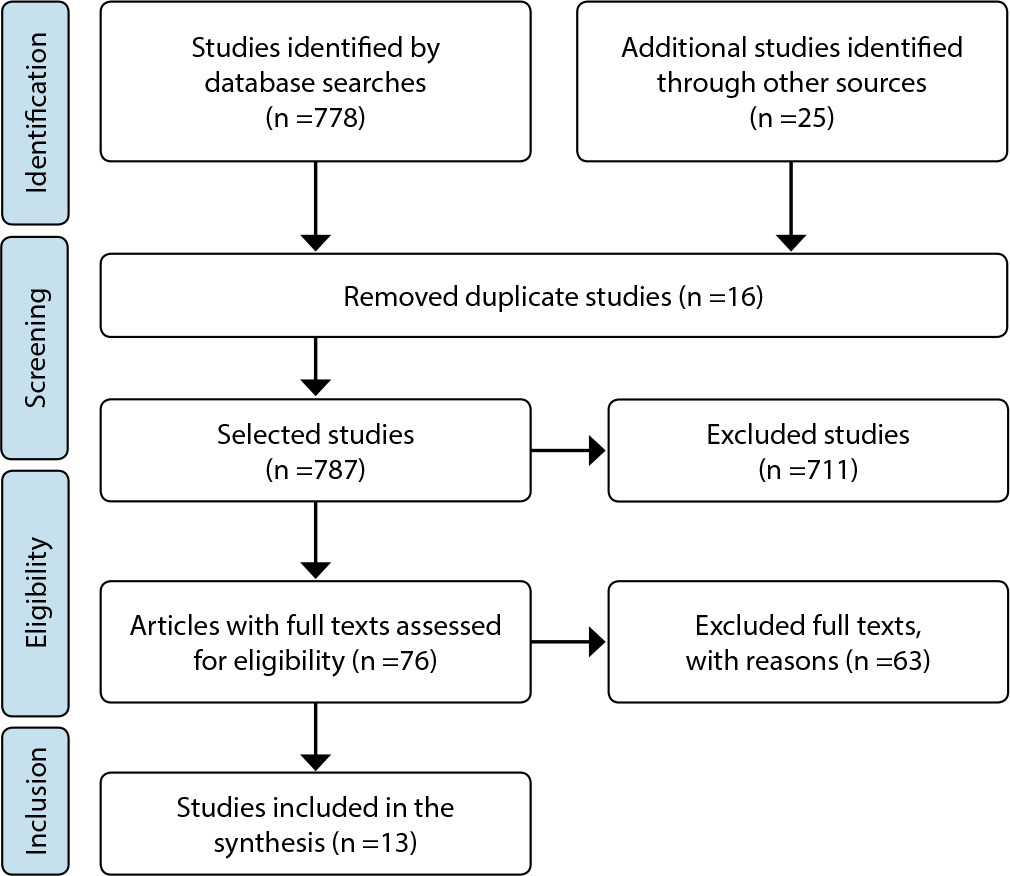
-
ORIGINAL ARTICLE10-25-2022
Brazilian nursing in pandemic times and the bicentennial of Florence Nightingale
Revista Brasileira de Enfermagem. 2022;75:e20210081
Abstract
ORIGINAL ARTICLEBrazilian nursing in pandemic times and the bicentennial of Florence Nightingale
Revista Brasileira de Enfermagem. 2022;75:e20210081
DOI 10.1590/0034-7167-2021-0081
Views0See moreABSTRACT
Objective:
To reflect on the role of Brazilian nursing during the COVID-19 pandemic, considering as a historical landmark the bicentenary of the birth of Florence Nightingale, a precursor of modern nursing, celebrated in 2020.
Method:
Theoretical-reflective study, based on Florence Nightingale’s environmental theory through a literature review, carried out in international and national virtual news from different sources and added to the authors’ experiences related to the pandemic.
Results:
It was possible to identify the weaknesses experienced by nurse practitioners as to contagion by COVID-19, the routine of exposure to risks, the lack of adequate protection in many scenarios, the high rates of illness, and also deaths that occurred in this profession.
Final considerations:
Florence Nightingale’s Environmental Theory describes the importance of the adequacy of the work environment. It also emphasizes the value of this professional for contemporary nursing and the redefinition of this professional category during the COVID-19 pandemic.
-
ORIGINAL ARTICLE07-30-2021
Curricular reforms in the transformation of nursing teaching in a federal university
Revista Brasileira de Enfermagem. 2021;74(4):e20201242
Abstract
ORIGINAL ARTICLECurricular reforms in the transformation of nursing teaching in a federal university
Revista Brasileira de Enfermagem. 2021;74(4):e20201242
DOI 10.1590/0034-7167-2020-1242
Views1See moreABSTRACT
Objectives:
to discuss the curricular reforms adopted for nursing teaching in Brazil, from 1969 to 2019.
Methods:
historical, qualitative approach using the thematic oral history and document research. 13 interviews were carried out with graduation nursing professors from a federal university in the South of Brazil. The document sources were the political-pedagogical projects of the course and their associated documents. Minayo’s thematic analysis was used.
Results:
nursing curricula delineates the profile of the professional that must be formed and are reviewed in order to be adapted to social and educational changes, showing the scientific and professional potential of the nurse. Curricular reforms consider the quality of nursing formation.
Final Considerations:
the structure of the curriculum and the reforms that took place emerged according to the historical, political, epidemiological and social context demanded from the profession, to attend to the demands of society and to the work market.
-
ORIGINAL ARTICLE04-15-2022
Analysis of the temporal trend of mortality from sickle cell anemia in Brazil
Revista Brasileira de Enfermagem. 2022;75(4):e20210640
Abstract
ORIGINAL ARTICLEAnalysis of the temporal trend of mortality from sickle cell anemia in Brazil
Revista Brasileira de Enfermagem. 2022;75(4):e20210640
DOI 10.1590/0034-7167-2021-0640
Views0See moreABSTRACT
Objectives:
To analyze the temporal trend of mortality from sickle cell anemia in Brazil, by region, in the period 1997-2017.
Methods:
epidemiological study, with an ecological design, with a temporal trend, carried out with data from the Mortality Information System. For descriptive analysis, absolute and relative frequencies were used. In the correlation analysis, the ANOVA test was used, followed by Tukey’s post-test. The temporal trend was obtained using the cubic polynomial regression test.
Results:
6,813 deaths from sickle cell anemia were registered. Brown individuals (50.87%) were more frequent, with a predominance of males (50.4%), aged between 25 and 34 years and a higher incidence of deaths in the Midwest (0.25/100 thousand inhabitants). The time curve showed an increasing trend of deaths in the country between 1997 and 2015 (R2 = 0.98).
Conclusions:
sickle cell anemia showed increasing mortality in the 21 years analyzed and alerts health professionals and managers.
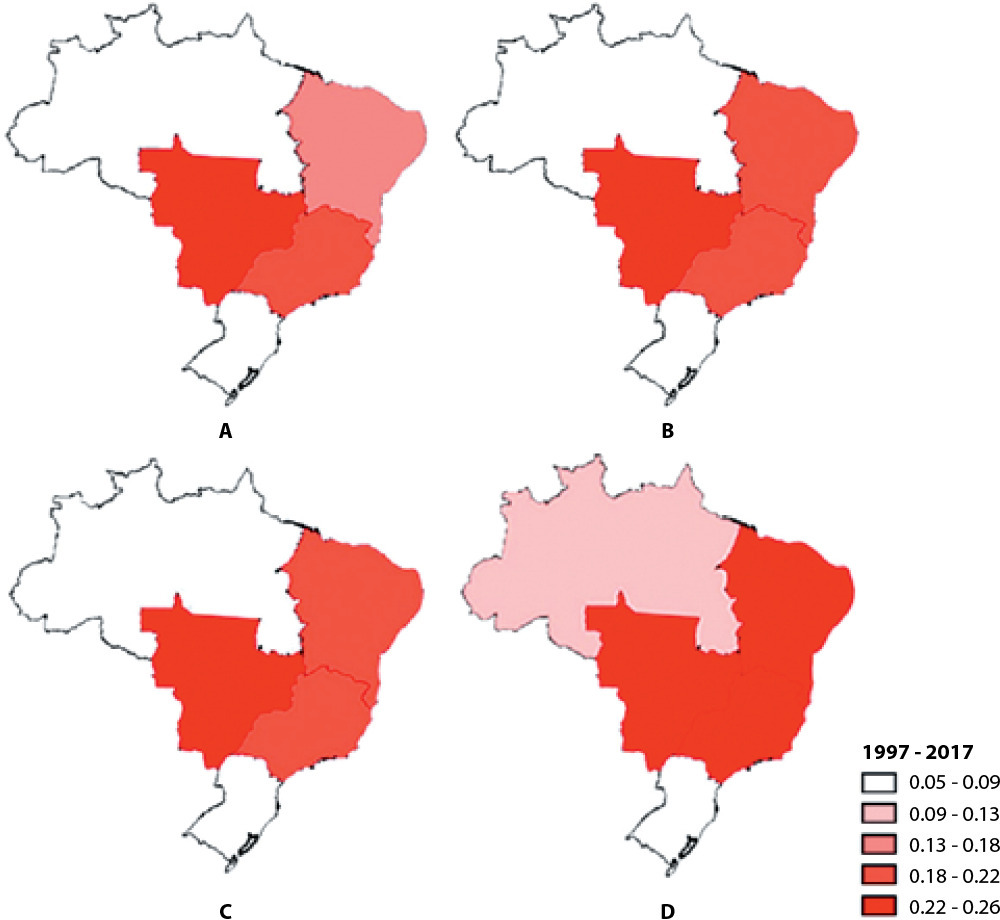
-
ORIGINAL ARTICLE06-11-2021
Social, health, and working conditions among hospital workers
Revista Brasileira de Enfermagem. 2021;74(2):e20200321
Abstract
ORIGINAL ARTICLESocial, health, and working conditions among hospital workers
Revista Brasileira de Enfermagem. 2021;74(2):e20200321
DOI 10.1590/0034-7167-2020-0321
Views0See moreABSTRACT
Objectives:
to compare social, health and working conditions among nursing, nutrition and hospital cleaning service workers.
Methods:
a quantitative cross-sectional, descriptive and correlational study carried out in a public hospital in the countryside of São Paulo, including workers from nutrition, cleaning and nursing services. Data collection occurred during working hours. Validated questionnaires and Karasek’s Demand-Control model were used to assess psychosocial dimensions and the Self-Reporting Questionnaire-20 to measure the common mental disorder. As dependent variable, the groups professionals and chi-square test were used for associations with p≥ 0.05.
Results:
227 workers participated. Positive associations were found between professional groups and socioeconomic, health and work characteristics.
Conclusions:
social, health, and working conditions differ between the professional groups studied.
Search
Search in:
Nuvem de Tags
Adolescente (85) Atenção Primária à Saúde (239) COVID-19 (91) Criança (91) Cuidados de Enfermagem (269) Educação em Enfermagem (151) Educação em Saúde (139) Enfermagem (930) Enfermagem Pediátrica (86) Estudantes de Enfermagem (77) Estudos de Validação (131) Família (87) Idoso (208) Promoção da Saúde (99) Qualidade de Vida (104) Saúde do Trabalhador (86) Saúde Mental (145) Saúde Pública (82) Segurança do Paciente (150) Tecnologia Educacional (100)



